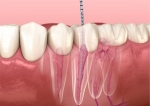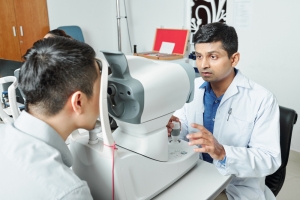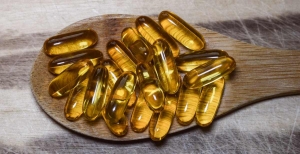As awareness of environmental sustainability grows, dental practices in Dubai are increasingly adopting eco-friendly methods in root canal treatments, ensuring patient care and ecological responsibility go hand in hand. Understanding these eco-friendly practices can not only enhance your dental experience but also contribute positively to the environment.
Understanding Root Canal Treatment:
To appreciate the eco-friendly practices in root canal treatment in Dubai, it's essential to first understand what the procedure entails and its significance in dental health.
Overview of Root Canal Treatment:
Root canal treatment is a dental procedure aimed at saving a tooth that is infected or severely decayed. During this process, the dentist removes the infected pulp, cleans and shapes the interior of the tooth, and then fills and seals it. This treatment not only alleviates pain but also prevents the need for tooth extraction, thereby preserving your natural tooth structure.
Importance of Eco-Friendly Practices:
Implementing eco-friendly practices in dentistry not only benefits the environment but also enhances patient experience and safety. As dental practices become more conscious of their ecological footprint, integrating sustainable methods becomes essential for attracting environmentally aware patients. In a vibrant city like Dubai, where the focus is on innovation and progress, eco-friendly dental practices can set clinics apart.
Eco-Friendly Materials Used in Treatment:
The choice of materials in root canal treatments significantly impacts both patient health and environmental sustainability.
Biocompatible Filling Materials:
Dentists in Dubai are increasingly using biocompatible materials that minimize harm to the environment and improve patient safety. These materials are designed to integrate seamlessly with the body and reduce the risk of adverse reactions. By selecting eco-friendly options, dentists not only prioritize patient health but also contribute to a more sustainable future. Patients can feel assured that their treatment not only helps their dental health but also aligns with environmental responsibility.
Sustainable Dental Supplies:
The use of sustainably sourced dental supplies, from instruments to disposable items, is gaining traction in eco-conscious dental practices. Many clinics are now opting for biodegradable products, such as gloves and dental bibs, which reduce plastic waste. This shift toward sustainability is essential in a city like Dubai, where waste management is a growing concern. Knowing that your dental supplies are eco-friendly adds an extra layer of peace of mind during your treatment.
Energy Efficiency in Dental Practices:
Energy-efficient practices within dental clinics contribute to reducing the carbon footprint associated with root canal treatments.
Modern Equipment and Technology:
The adoption of modern, energy-efficient dental equipment helps reduce energy consumption during root canal procedures. Many clinics have invested in LED lighting and advanced dental technology that uses less power. This not only benefits the environment but also improves the overall patient experience by creating a comfortable and welcoming atmosphere. Patients can enjoy their treatment in an eco-friendly setting, knowing that their comfort is a priority.
Reducing Waste with Digital Solutions:
Digital record-keeping and imaging technologies minimize paper use, contributing to a greener dental practice. By transitioning to electronic health records and digital x-rays, dental clinics can significantly cut down on paper waste. This move not only saves trees but also enhances efficiency and organization in patient care. Patients who value technology and sustainability can appreciate the modern approach of their dental clinics.
Water Conservation Efforts:
Water conservation is a crucial aspect of eco-friendly dental practices, and many clinics are taking steps to reduce water usage during procedures.
Water-Efficient Dental Equipment:
Utilizing water-efficient devices not only conserves water but also maintains hygiene standards during treatments. Modern dental units are designed to use minimal water while ensuring effective cleaning and disinfection. This helps dental practices in Dubai reduce their water consumption significantly, which is especially important in an arid climate. Patients can feel good about choosing a clinic that prioritizes water conservation.
Staff Training on Water Conservation:
Training staff to follow water conservation protocols ensures that eco-friendly practices are implemented consistently. Clinics are now focusing on educating their teams about the importance of water-saving measures and how they can contribute to a more sustainable practice. This commitment to training not only benefits the environment but also enhances the overall patient experience, as informed staff can provide better care.
Patient Education and Involvement:
Educating patients about the benefits of eco-friendly practices in root canal treatments fosters a more sustainable approach to dental care.
Informing Patients about Sustainable Options:
Dentists can provide information about eco-friendly materials and methods, empowering patients to make informed choices. By discussing the environmental impact of their dental treatments, patients can better appreciate the importance of sustainability in their care. This engagement fosters a collaborative relationship between the dentist and the patient.
Encouraging Sustainable Dental Hygiene Practices:
Promoting sustainable dental hygiene practices at home can further enhance overall environmental responsibility. Patients can be encouraged to use biodegradable toothbrushes and eco-friendly toothpaste, which not only benefits their oral health but also reduces plastic waste. By integrating these practices, patients can take their commitment to sustainability beyond the dental office.
Conclusion:
Eco-friendly practices in root canal treatment in Dubai represent a significant step towards sustainable healthcare, benefiting both patients and the environment. By prioritizing sustainable materials, energy efficiency, water conservation, and patient education, dental practices can create a positive impact on their communities while providing high-quality care.






